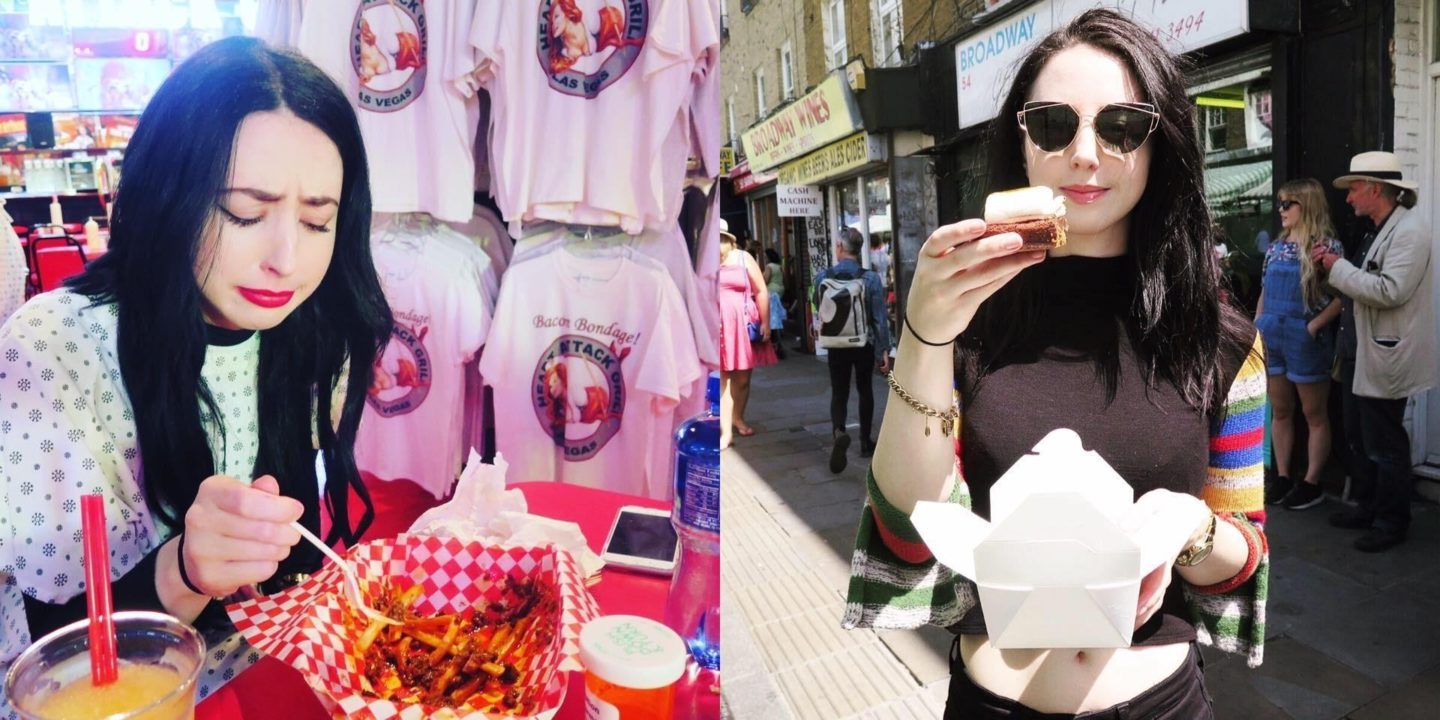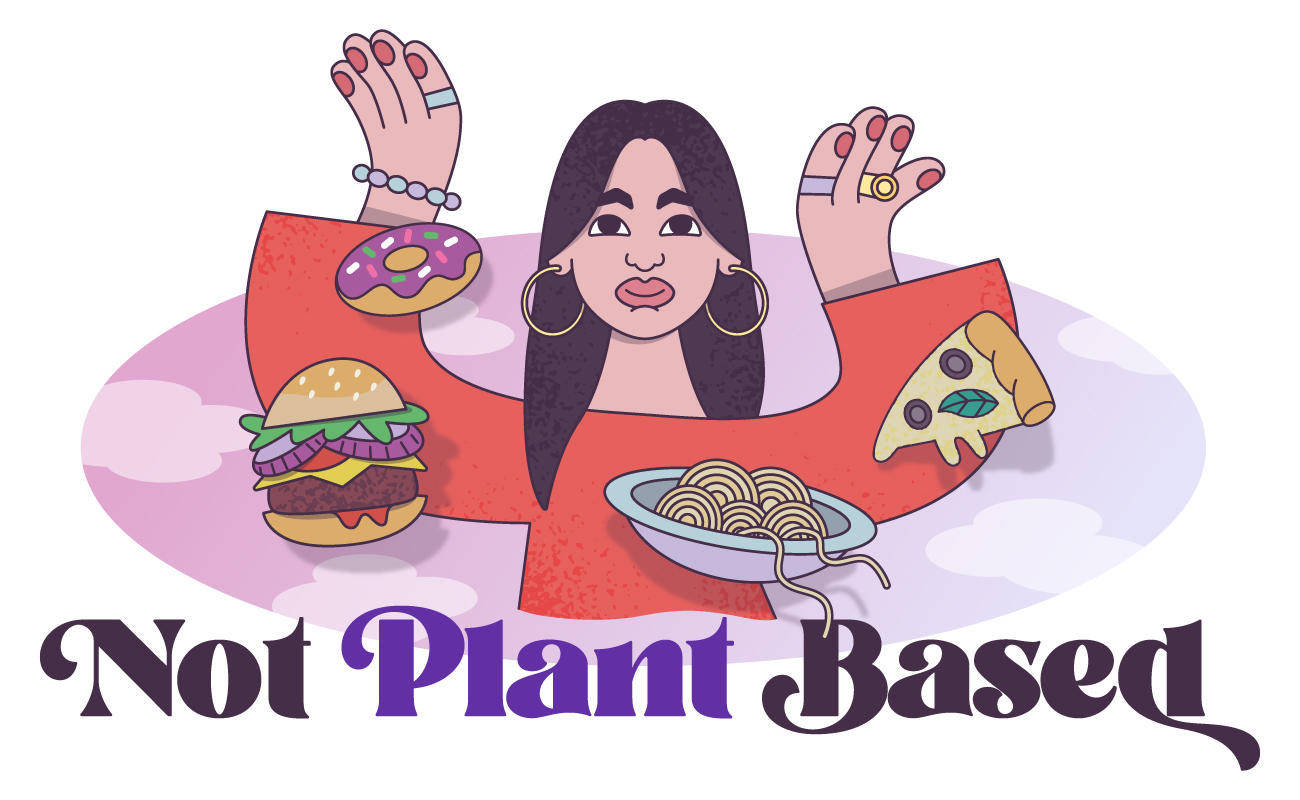
My friend (my closest friend at the moment, I would say) described to me a conversation she had with a girl we both went to school with. The conversation was about me, and how I “used to be”. As sweetly as she could put it without hurting my feelings, my friend said that she used to find talking to me “like walking on eggshells”, to which the other girl seconded that she found me “unapproachable”. My stomach churned as I listened to one of my strongest fears being confirmed – that my recovery from an eating disorder made me a monster that not many were prepared to deal with.
I suppose I knew this already. I lost contact with pretty much all of the friends I was so close with in school, as they didn’t seem to want to deal with me with the added burden of an eating disorder. I suppose I can understand. There are a couple of particularly painful-to-relive stories that fly into my mind occasionally and fill my stomach with an avalanche of anxious butterflies. The first was a holiday, where I went abroad with about five girls from my school. Each day I would wake up worrying about when we would be having our evening meal, and would ask them all repeatedly throughout the day if we could plan a time to eat so that I could feel less uneasy. Of course, they were young girls on holiday, and didn’t want to make rigid plans, so they all ignored me totally meaning I spent the days in total dread and couldn’t enjoy myself. When you are in recovery for an eating disorder/have an eating disorder, you often fear being hungry, and this was exactly what I tried to avoid. They did not understand this. My friendships with these girls soon fizzled out. The second story is an embarrassing one. This was a couple of months into beginning to starve myself and losing an unholy amount of weight. I had been invited to an 18th birthday party at my friend’s house, where her mom had kindly put on a spread of party food, which happened to be all the foods I had been trying to avoid in order to wear my new skinny frame. I crumbled. I couldn’t stop eating. Everything. I was embarrassed. My stomach turned hard with a pastry foetus. Everybody noticed that I was acting crazy, laughing about how such a small girl could eat so much. But things didn’t stop with the Iceland platters. Towards the end of the night, after nagging and nagging at the birthday girl to cut the cake so that I could have some myself – to which she would playfully tell me to “fuck off” – I ended up cutting it myself in a state of panic and eating it before her. She was not happy. I wouldn’t have been either. Obviously. That was my first introduction to the fact that I had a problem with binge eating. I weighed myself the next morning. I had gained over half a stone.
Although I know this behaviour was irrational and difficult to deal with, the thing that hurts me is that I had told all the people mentioned above that I was battling with food and struggling with an eating disorder, but unfortunately for me, that did not excuse my annoying behaviour, and they all cleared off soon enough when I was at my most lonely and vulnerable. This made me feel worthless. When I look back, all the signs of a mental illness where there and seem clear to me now, but perhaps being young and inexperienced in dealing with mental health problems was difficult for my friends to deal with. Beat say that eating disorders can cause “mood swings, irritability and social withdrawal”. Check, check, check. For bulimia specifically, they say that the sufferer can spend “a lot or most of their time thinking about food”, check! And will feel “anxious and tense, especially around meal times or when eating in front of others”, which explains my behaviour in all of the above examples.
Now that I’ve managed to recover, after many difficult years, enough to feel comfortable, myself and loved by people who are more understanding, I’ve found myself surrounded by others who can relate to my behaviour during my worst times, and who have had similar experiences with their own friends and family.
Ashleigh says: “I’ve been described as cagey, uncommunicative and difficult. When my eating disorder was out in the open and I was working toward recovery I still found it difficult to talk about and unhelpful when people would try to regularly question me on how I was. I think a part of me was still struggling to let go after having such a huge secret for so long (10 years in my case).”
Charlotte remembers being called “hostile” and “cold” during recovery. “But I don’t think this was as bad as when I was still in the shackles of an eating disorder; my mum would say I was ‘flat as a pancake’, as my mood was so low and I didn’t have the energy for a twinkle in my eye or to show any charisma to anyone. But I definitely found as I started to become healthy again that people kept their distance and felt they were treading on eggshells, which massively sucks.”
Ah, the old “eggshells” comment, back again!
Interestingly, Annika wonders whether her body shape had a role to play in why people didn’t take her seriously. “There was a moment where my mother told me she was tired of trying to help me and that I was making things more difficult than they need be. I had a friend who told me I was being unreasonable and ridiculous (exact words) when I had a panic attack over food she cooked for me. I overheard many a conversation after difficult and stressful social situations involving food using words like ‘fussy’, ‘silly’ and ‘high maintenance’.
“In fact to be honest, there are an awfully list of times I felt like a nuisance, that I was made to feel as if I was being attention seeking and to be embarrassed about it. I had a minor relapse about six months after I started to properly try to recover and Mum said ‘oh, you’re not that thin. I wouldn’t worry’. All things that have delayed a proper recovery and contributed to the format my eating disorder has now.”
It all went wrong for me during my late teens and early twenties. Despite always being a melancholic child, I had lots of friends, fun and enjoyed most of my days being active and creative. It was only later on that I developed a real problem with anxiety and episodes of depression, which eventually manifested themselves into an eating disorder. My close friend’s “stepping on egg shells” comment stems from the time I lived in London. I was having daily panic attacks, felt incredibly lonely, and would bombard her with messages describing her as a “bad friend” and saying that she wasn’t there for me. Upon reflection, this was far from the case. Everyone deals with their demons in different ways, and unfortunately for her, when I am most upset, I can become aggressive (not physically), confrontational and argumentative, all of which I have apologised to her for repeatedly. I am lucky that she can understand and be so forgiving. I wish my other friends had been the same way.
When I think of my behaviour when my mental health is poor I can feel dreadful about it, beating myself up for not being able to be a better friend when that is exactly what I am looking for myself. No one deserves to have things taken out of them, but equally I do not deserve to punish myself too much for having mental health problems, which thankfully I have been able to work through somewhat and have built healthier strategies to deal with things in order to protect my future and current relationships. I regret a lot of things I did during my eating disorder and into my recovery, but I must be kinder to myself instead, and thank those that stuck around – the few. All you can do is move forward, and hope that you have the strength to be there for your friends should they go through a similarly awful situation.




I found this so difficult to read as I can relate to it so much. Still feel right in the middle of that place and getting out seems the impossible task!
Thank you for posting this – it really resonates with problems i’ve had in different friendships and my relationship with my boyfriend. The anxiety of dealing with feelings by coping with non-food mechanisms is HARD for anyone, but especially when you’re dealing with an eating disorder and TRYING to work through it. I too have been called difficult, or hostile, cagey, frigid, short/curt and being or talking to me is like walking on eggshells – especially around plans for meals etc.
Sending you lots of love! This reminds me so much of my own recovery.